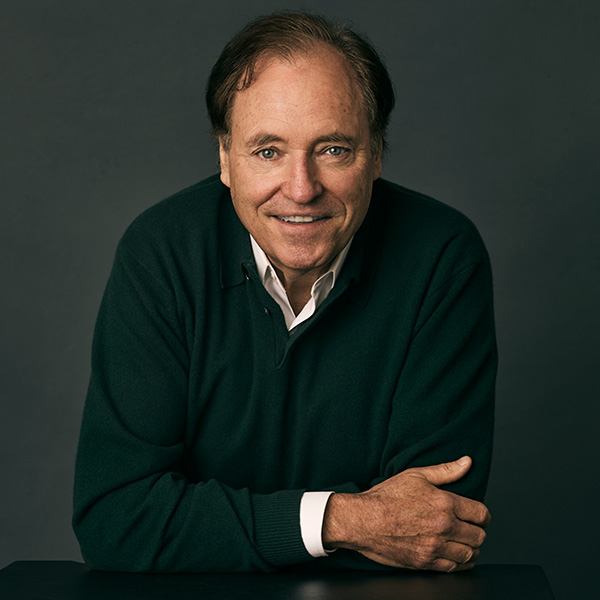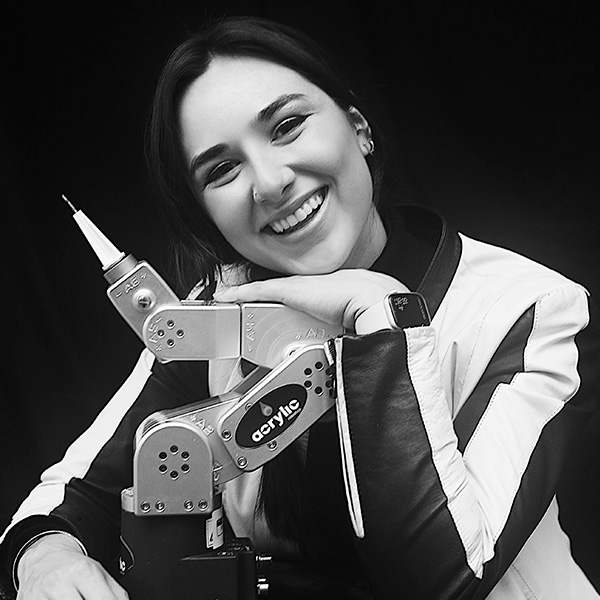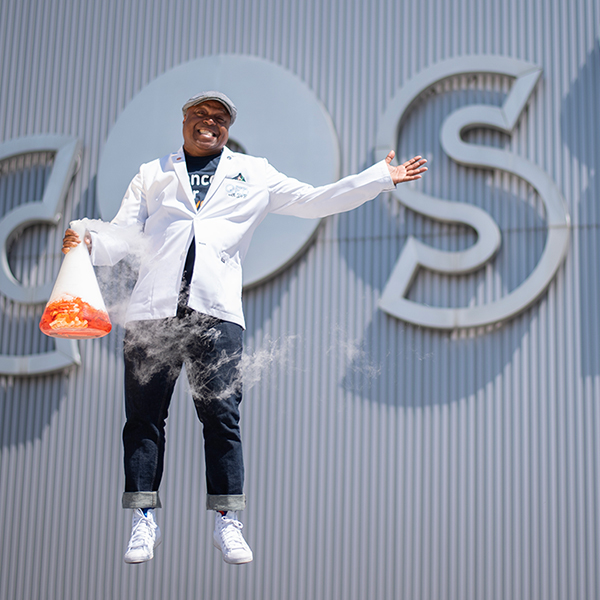To celebrate the 10th anniversary of its Best in the West Student Awards program, McGill is hosting star-studded panel discussions in Vancouver and Calgary in June 2018, to examine challenges in the quest for knowledge about our universe and beyond.
The panel will feature renowned astrophysicist and McGill Physics Professor Victoria Kaspi, along with former Canadian astronauts and McGillians Robert Thirsk, MDCM’82, and Dafydd “Dave” Williams, BSc’76, MDCM’83, MSc’83, DSc’07.
We spoke to Thirsk and Williams in advance of the events. (This interview has been condensed.)
Q. Were you interested in space as a child and what sparked that?
Williams: When Alan Shepard lifted off to go into space, it was about 11 days before my 7th birthday. I remember watching on a small black and white television with my parents, thinking, ‘Wow, that’s absolutely incredible!’ And, of course, in the sixties, we were pretty low-tech in those days, it seemed absolutely incredible that people were riding on rockets and exploring space and stuff. I followed Star Trek when it first came out and, of course, Lost in Space.
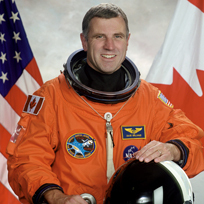
Thirsk: I grew up during an incredible period of time, the sixties and seventies. It was a time when society was moving very quickly. In particular, science education and engineering got a big push from the Apollo missions that the United States was pursuing. I was infatuated with the space program, and a lot of the American astronauts and Soviet cosmonauts were my role models and heroes. [In] grade 3, my teacher turned on a radio in our classroom and [we] listened to a space broadcast in real time. That was the first day I heard about this place called space, and realized that this profession called astronaut existed.
Q. Where would you like to see Canada’s role in space go?
Williams: Canada is a major space-faring nation and it’s important that we remember that. Many people don’t fully appreciate the fact that the space station was built using the Canadarm. All the elements were launched on the Space Shuttle, but fundamentally, we used the Canadarm on the Space Shuttle and on the Space Station to be able to hand off the modules, assemble them and bring them together.
After we lost [Space Shuttle] Columbia in 2003, NASA could not return to space flight until there was a capability developed to inspect the tiles on the under-surface of the orbiter. The Canadarm provided the solution to that with the Orbiter Boom Sensor System – the OBSS, also developed in Canada.
We’ve got an incredible global reputation for excellence in the niche areas we have and I would like to see Canada maintain its status as a major space-faring nation.
Thirsk: Think about some of the expertise that Canada has in clinical medicine. McGill University has an incredible international reputation for medical research and medical education. It’s the main reason Dave and I chose to go to medical school at McGill. But also think of some of the other resources that McGill has, such as Dr. Joëlle Pineau and her artificial intelligence work. We can leverage that expertise that we have in artificial intelligence, clinical medicine, medical training, medical robotics, minimally invasive surgery, and Canada can lead the world in astronaut health care. The next place we’re going is deep space. In my lifetime, we will have astronauts, including Canadian astronauts, on Mars, and Canadian medical expertise can be harnessed to take care of those astronauts.
Q. NASA’s latest mission to Mars is the first to study “the heart of Mars”. What area of space exploration are you most excited about?
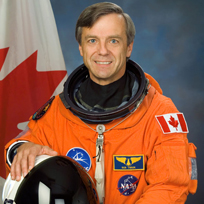
Thirsk: I’m most interested in human space flight. The robotic missions [to Mars] that you talked about are important. They sort of pave the way for humans to follow. But the other area that interests me is some of the work that Vicky Kaspi is doing, the astrophysics work. I think in our lifetime we will identify life elsewhere in our galaxy and that would be the story of the 21st century. It would give us a different perspective of our world [and] humanity on the day that we discover that there’s life elsewhere in our galaxy.
Williams: I’m most excited about the possibility of sending humans to Mars. If you said to me, ‘either or, Moon or Mars’, I would probably fall on the side of Mars. I truly understand the risks in going Mars Direct. But if you look back to the risks that were accepted in the 1960s in sending humans to the moon, those risks were very significant as well.
The reason we want to send humans to Mars is to utilize the resource capabilities of rovers with the judgment of humans in determining where to explore and what to look for, to determine whether or not life may have once existed on another planet in our solar system – which, from a scientific perspective, is probably one of the more important questions that we’ve asked.
Q. What area of space exploration are you most concerned about?
Thirsk: Wherever humans venture we tend to contaminate or pollute, and one of the big problems that we haven’t paid any attention to is space debris. We’re polluting the near Earth realm with spent rocket stages, old satellites, even small things like chips of paint and screws. If we don’t put new policies in place, make companies responsible for bringing down their satellite after they’ve finished the mission, space will soon become impassible.
Williams: My biggest concern is the continuity of funding and support for government space programs for the major space-faring nations. Because as we see the emergence of the private sector in space exploration, which is fantastic, I think it’s really going to be a partnership between the private sector and government-supported space exploration that will take us beyond Earth’s orbit.
Q. Did your thoughts about the environment and humankind’s responsibility to look after Planet Earth change after spending time in space?
Thirsk: Yes. I think most astronauts before they fly are already environmentalists. But it’s certainly sharpened once you come back home. You cannot look down on Earth from the vantage point of the orbital flight and not receive a new perspective of what the environment and what humanity is all about. We really realize that we have limited resources on Earth, such as the atmosphere, oceans, seas, and it’s so easy and clear to see the impact of human activity on the planet from up above. That was an eye-opener for me.
Williams: Short answer is yes. That changes, and also your perception of the planet and what it means to be human and live on our planet. When you look back at the planet, you don’t see any magic lines separating countries. You realize that we’re in fact all in this together and we need to figure out how to work together with different cultures, backgrounds, and languages to be able to do the things that we need to do to protect the planet for the future.
Q. Was there anything in particular about your McGill experience that led you toward space exploration or which you found to be particularly helpful in your career?
Thirsk: I think Dave and I, in particular, are well known for the research that we [did] in space. A lot of the pioneers in space exploration come from McGill University. [McGill Professor Emeritus] Doug Watt had some of the earliest experiments onboard the Shuttle that I had the honour of operating. And McGill is still producing great science as well, which we continue to perform.
The other thing, too, I think McGill is the No. 1 producer of Canadian astronauts.
Williams: I think had I not gone to McGill, I never would have been selected as an astronaut. There’s no question that going to McGill medical school and being an emergency physician is a big part of why I was selected. Because if you’re going to send humans to space for six months to a year at a time, it might be a good idea to have an astronaut doctor there. Each time I was in space, I ended up caring for my crewmates and I’m sure Bob did the same thing as a physician astronaut.
Q. I’m going to end on a lighter note. Do you have a favourite TV show or movie about space?
Thirsk: Do you really have to ask that one? [laughs] We all love Star Trek. It’s either Star Trek or Star Wars, and for me it’s Star Trek.
